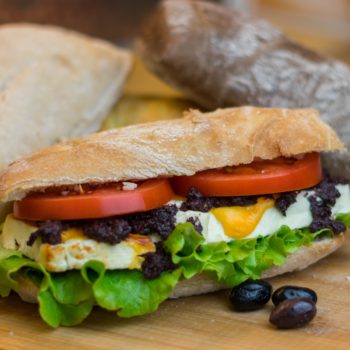Store closures mount as Covid-19 pandemic hits footfall

Independent retail outlets account for around 70% of closures to date, while approximately 40 branded convenience stores have closed
14 April 2020
While supermarket sales have soared in recent weeks, the boost has not been felt equally across the market, with a number of newsagents and convenience stores forced to close their doors due to a decline in footfall and foodservice restrictions.
ShelfLife has seen updates released by distributor Newspread, which show that approximately 370 stores across the island of Ireland have closed, including 270 in the Republic and some 100 stores in Northern Ireland.
Independent retail outlets accounted for around 70% of closures to date, according to Newspread’s records. The distributor’s figures also included a large number of both Easons and WH Smiths outlets. In total, 58 Easons stores have closed with seven franchise stores remaining open. Meanwhile, WH Smiths has closed all its 11 shops, in Dublin Airport (six), Cork Airport (one), Shannon Airport (one), Belfast City Airport (two) and Aldergrove Airport (one).
Despite declining commuter traffic, Circle K and Applegreen have so far kept all of their sites open. Two Tesco Ireland petrol filling station (PFS) stores are currently closed, due to the fact that refit works have had to be temporarily paused.
A Tesco spokeswoman said: “Tesco and DCC Retail & Oil agreed a transfer of the operations of the Tesco petrol filling business on a phased basis for completion in the first quarter of 2020. Due to the ongoing Covid-19 pandemic, this transfer is now temporarily paused. Two stations at Drogheda and Dundalk are currently closed as refit works, which began prior to Covid-19 restrictions, had to be paused. The remaining 20 Tesco Ireland petrol filling stations remain open for business across Ireland. Further transfers of operations will recommence as soon as possible when restrictions are eased.”
Meanwhile, branded convenience stores account for approximately 40 closures.
Applegreen recently reported that it expects to see a “material reduction” in profitability in 2020. The fuel-forecourt operator revealed it had traded strongly and in line with management expectations for the first 10 weeks of 2020. However, footfall and volumes were impacted during the following two weeks as governments and customers tried to contain the spread of Covid-19.
The news is a far cry from the latest figures reported by Kantar on sales within the supermarket sector. According to the analyst, during the 12 weeks to 22 March 2020, the Irish grocery market experienced its busiest ever period – increasing year-on-year sales by 10.1% to reach €2.8 billion. Growth in the four weeks to 22 March was nearly three times higher, with shopper spend up 27%, making March the biggest month of grocery sales ever recorded.
Vincent Jennings, CEO of the Convenience Stores and Newsagents Association (CSNA), recently commended local shopkeepers for “going far beyond the call of duty in communities nationwide”.
“Amid this time of fear and uncertainty,” Jennings said, “we are hearing wonderful stories of how our members are reinventing how they do business to serve the needs of their most vulnerable customers.”
Nevertheless despite their important role within local communities, many convenience store retailers have experienced a decline in deli/foodservice operations which accounts for a major part of their business; down by 60-70% according to industry sources.
RGDATA, the organisation which represents independent retailers, recently launched a social media campaign encouraging consumers to shop locally.
“RGDATA wanted to remind customers that buying Irish in your local shop has a significant positive impact on your local community,” said RGDATA director general Tara Buckley.
“According to research done for RGDATA by economist Jim Power, €1 spent in your local shop is worth €4 to your local economy,” Buckley added. “It’s called the multiplier effect and we all need to remember this as we work together to get through this pandemic.”
This article was updated at 12.25 on 15 April 2020 to amend information relating to Tesco Ireland petrol filling stations.



 Print
Print






Fans 0
Followers